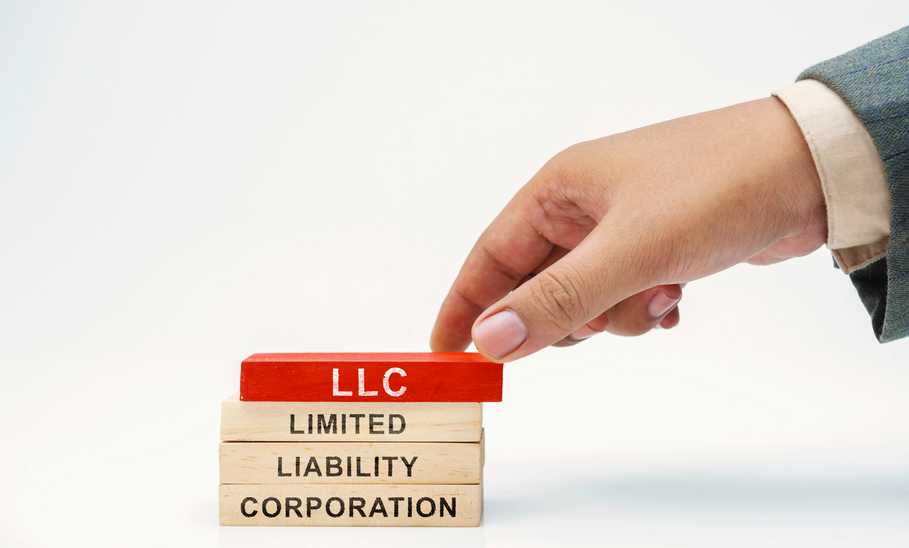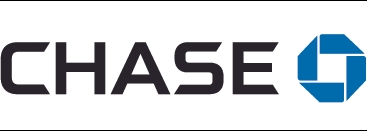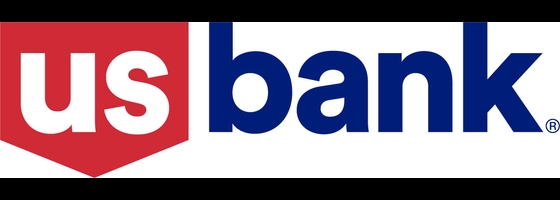Keeping your personal and business finances separate is essential if you have a limited liability company (LLC). Doing so makes accounting easier at tax time and, more importantly, protects your personal assets from business liabilities. Opening a business bank account for your LLC is essential to ensure that those funds aren’t commingled. The best business bank accounts for LLCs offer flexible account minimums, low fees, competitive rates, and top-notch customer service. Here are five LLC-friendly bank accounts to consider.
Our recommendations
Axos Bank Basic Business Checking
Axos Bank’s Basic Business Checking account has no monthly maintenance or overdraft fees, a 0 minimum deposit, and no minimum balance requirements. You’ll also get unlimited transactions, access to a free nationwide network of ATMs, and unlimited ATM fee refunds. The Business Interest Checking account offers similar features but pays up to 1.01% APY when you maintain a 5,000 minimum average daily balance.
Pros:
- No monthly fees or minimum opening deposit.
- Unlimited free transactions.
- Unlimited refunds on out-of-network ATM fees.
- Free domestic incoming wires.
- 24/7 phone support.
- Compatible with QuickBooks.
Cons:
- No physical branch locations.
- $25 overdraft fee.
- $50 international outgoing wire transfer fee.
Live Oak Business Savings
Live Oak Bank’s Business Savings account is an excellent place to stash your LLC’s idle cash or emergency fund. It offers a competitive 3.70% APY on all balances with no monthly fees, no minimum opening deposit, unlimited transactions, and up to $10 million in Federal Deposit Insurance Corporation (FDIC) insurance (well above the usual $250,000 limit) through the IntraFi Network. The bank also offers three business checking accounts with waivable monthly service fees, a $0 minimum balance, and QuickBooks integration. However, you can’t deposit cash, so it’s not a good option for cash-heavy businesses.
Pros:
- Competitive APY.
- No monthly fees or minimum opening deposit.
- Unlimited transactions.
- FDIC insurance coverage up to $10 million.
- High-yield CDs available.
- Compatible with QuickBooks.
Cons:
- No ATM or debit card access.
- Limited customer service hours.
- No cash deposits.
Lili Basic Business Checking
Lili’s Basic Business Checking is its entry-level account with no minimum balance or deposit requirements, no overdraft fees, and no ATM fees at 38,000+ MoneyPass locations. The account comes with a Visa business debit card that offers cash back from participating merchants. You can make unlimited transactions for free and access money from your payers two days early, thanks to Lili’s early payment feature.
Pros:
- No monthly fees or minimum opening deposit.
- No overdraft fees.
- Unlimited free transactions.
- 38,000+ fee-free ATMs.
- Deposit cash at Green Dot locations.
- Compatible with QuickBooks.
Cons:
Cons
- Only Lili’s fee-based accounts offer business tools.
- Out-of-network ATM fees.
- Up to $4.95 cash deposit fee.
Chase Business Complete Banking
The Chase Business Complete Banking account has a 0 minimum opening deposit and unlimited electronic transactions. There is a 15 monthly service fee, though you can avoid it by maintaining a 2,000 minimum balance or meeting other criteria. There is also a 34 overdraft fee if you overdraw the account by more than $50, but Chase gives you until the end of the next business day to correct your balance before the fee kicks in. A valuable account feature is Chase QuickAccept, which lets you accept credit card payments in person and over the phone.
Pros:
- No minimum opening deposit requirement.
- Unlimited Visa debit card and ATM transactions.
- 16,000+ Chase ATMs and 4,700 branches.
- Accept payments from anywhere.
- 24/7 customer service.
- Compatible with QuickBooks.
Cons:
- $15 monthly fee.
- $34 overdraft fee.
- Out-of-network ATM fees.
U.S. Bank Silver Business Checking
U.S. Bank’s Silver Business Checking account comes with zero monthly fees, a 100 minimum opening deposit, and up to 125 free transactions per statement cycle. There are no overdraft fees if you overdraw the account by 50 or less—otherwise, you’ll pay $36. The account comes with a Visa debit card to pay for business purchases and use at 13,000 fee-free ATMs nationwide.
Pros:
- No monthly fees.
- No overdraft fees if account is overdrawn by $50 or less.
- No-fee transactions at U.S. Bank ATMs and branches.
- 24/7 customer service by phone.
- 50% discount on first box of business checks.
- Up to $800 welcome bonus (terms apply).
Cons:
- $0.50 excess transaction fee.
- Out-of-network ATM fees.
- No paper statements.
Best Business Bank Accounts for LLCs compared
|
Axos Bank Basic Business Checking | | | | | Up to $700 when you open a business checking account and a high-yield rewards checking account |
Live Oak Bank Business Savings | | | | | |
Lili Basic Business Checking | | | | | |
Chase Business Complete Banking | | | $15 (waived with $2,000 minimum balance) | | $400 when you open a new account with qualifying activities |
U.S. Bank Silver Business Checking | | | | | $800 when you open a new account and complete qualifying activities |
Methodology
We evaluated more than a dozen bank accounts from traditional and online banks offering business accounts suitable for LLCs. We compared APYs, fees, minimum opening deposit requirements, transaction limits, Apple Store and Google Play ratings, customer service availability, and access to fee-free ATMs and in-person branches. Accounts with competitive APYs, lower fees, easier account minimums, and flexible customer service options made our list of best business bank accounts for LLCs.
More on business accounts for LLCs
How to choose the best business accounts for LLCs
Once you decide to open a business account for your LLC, consider the following to ensure you select one that suits your needs:
- Traditional vs. online banks. The first thing to consider is whether you want in-person access to a physical branch. If you make frequent trips to make deposits, withdraw cash, or buy rolls of change, be sure the bank has a convenient network of branch locations and fee-free ATMs. An online bank may suffice if you can accomplish your banking needs digitally.
- Transaction limits. Many business accounts charge for each transaction over a specific monthly limit. Look for an account with limits that accommodate your typical transaction volume. The best business accounts have flexible transaction limits—or don’t charge excess transaction fees at all.
- Fees. Bank fees can nibble away at your bottom line over time. Common charges include monthly maintenance fees, excess transaction fees, out-of-network ATM fees, overdraft fees, and wire transfer fees. Read the fine print so you know what to expect—and find a bank account with zero (or at least low) fees for the services you’ll use.
- Rates. A competitive APY is a plus, especially if you have a substantial balance in the account. However, a higher-than-average APY may not matter if you’re paying a lot of fees. Consider all of the account’s features before deciding if it’s a good fit.
- Deposit requirements. You might have to maintain a certain balance to take advantage of the best rates and lowest fees. Find out if the account has any minimum opening deposit or balance requirements—and consider whether you’ll comfortably meet them.
- Customer service. Having access to flexible customer service is essential. Look for banks that offer 24/7 support via phone or live chat. If you prefer in-person banking, consider whether you’ll have convenient access to local branches and in-network ATMs.
What is an LLC bank account?
An LLC bank account is a business bank account opened specifically for a limited liability company. A key benefit of forming an LLC is its liability protection. LLC members aren’t personally liable for the company’s financial obligations. A business bank account for an LLC helps ensure the LLC members’ finances aren’t commingled with the company’s finances, thereby preserving the limited liability protections.
Can you use your personal bank account for an LLC?
Having a bank account for your LLC helps to avoid mixing your personal and business finances. The LLC provides you with liability protection. To benefit from those protections, you have to keep your personal and business accounts completely separate. Otherwise, you could be personally liable for your company’s financial obligations.
What you need to get an LLC bank account
While the requirements for opening a business bank account vary by financial institution, the bank may ask for any of the following:
- Personal information: Your name, address, phone number, birth date, Social Security number (SSN), and a government-issued ID, such as your driver’s license or passport.
- Business information: Your LLC’s legal name, address, and the date your business was formed.
- Business documents: Your LLC’s organizing document filed with the State (e.g., articles of organization, certificate of organization, or certificate of formation), business license, ownership agreements, DBA (doing business as) name, and Employer Identification Number (EIN).
Who can open a business bank account for an LLC?
Any LLC owner (member) or authorized manager can open a business bank account on the LLC’s behalf. You’ll need to provide personal information (e.g., SSN and date of birth) for everyone on the application, including the controlling manager and anyone with 25% or more ownership in the company.
Establish business credit with a dedicated LLC account
Establishing credit is an essential part of growing your business. Credit improves your chances of being approved for loans and other forms of financing. It also helps build credibility and demonstrates to lenders, vendors, and suppliers that your company is reliable and reputable.One way to build business credit is by opening a business bank account. Establishing a credit history for your business also makes it easier to access financing with better rates and repayment terms so you have more money to invest in your business.
TIME Stamp: Preserve LLC protections with a business checking account
Having a dedicated LLC bank account separates your personal and business expenses. This helps preserve the limited liability protections the LLC provides, safeguarding your personal assets from business liabilities. Having a business bank account for your LLC will also help make accounting much easier when it's time to pay taxes.
Frequently asked questions (FAQs)
Can you open a business account without a business?
Usually, you’ll need to provide business documentation proving you have an established, legally registered business to open a business account. However, some banks may allow you to open an account with your personal details (e.g., Social Security number and a government-issued ID) if you operate as a sole proprietor under your name.
What you need to open a business account
The requirements vary by bank, but the most common documents banks ask for include your company’s EIN (or SSN if you’re a sole proprietor), formation documents, ownership agreements, and a business license.
How much money should I keep in my LLC bank account?
You’ll need cash for rent, supplies, salaries, and other day-to-day expenses. While needs vary by business, keeping three to six months’ worth of operating expenses in your bank account is a good starting point.
Can I open a business bank account with no money?
Many business bank accounts can be opened without making an initial deposit. However, some banks require a minimum opening deposit ranging from $25 to $100 or more.
The information presented here is created by TIME Stamped and overseen by TIME editorial staff. To learn more, see our About Us page.










